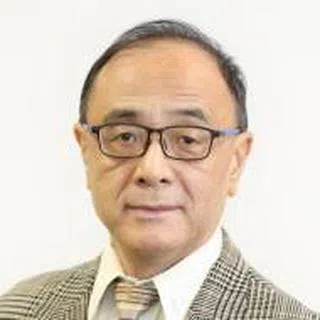Can the CCP truly serve the people?
Recent protests against the Covid restrictions show that the CCP's mantra of "serving the people" is a double-edged sword. The platitude lends ideological ammunition and justification for people to retaliate, and may also give far leftists fodder for accusing the party of abandoning their original mission. Rather than a nameless "the people" which can be manipulated politically, perhaps it is time to think of the people as each and every person whose rights need to be safeguarded.
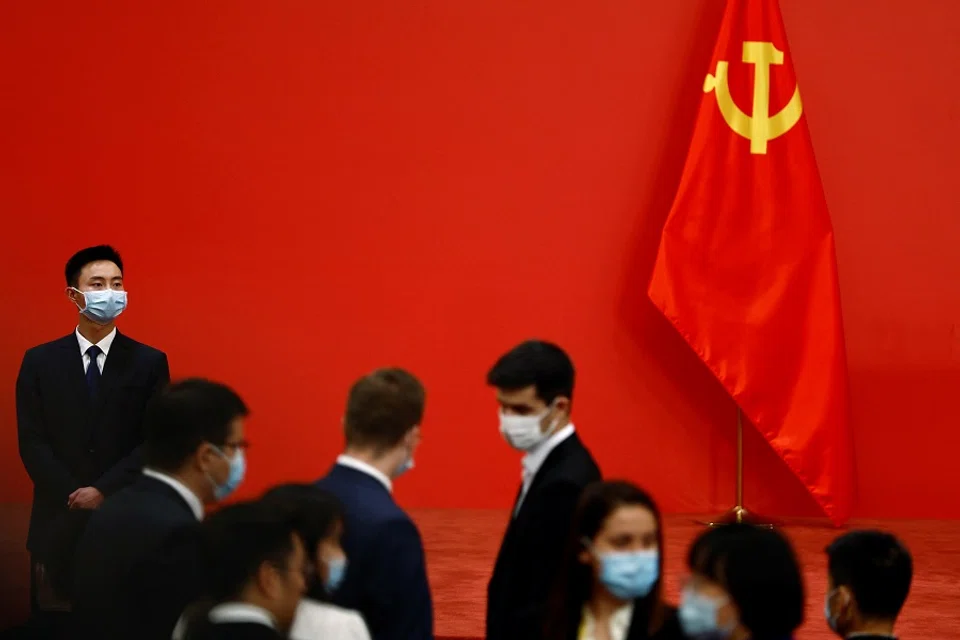
Today, practically all governments in the world claim that they "serve the people". No one dares to proclaim "L'état, c'est moi" ("I am the state") like Louis XIV anymore. However, ignoring, oppressing and exploiting the people is common even in some countries that embrace liberal democratic ideals and conduct regular elections. These countries also produce governments that neglect the people, become themselves ruling oligarchs, or are bought by big money and only serve the wealthy. Their response to the people's demands is sometimes even worse than some of the so-called "authoritarian" countries.
In such a complex and diverse political arena with politicians all declaring that they "serve the people", it makes people wonder who those "people" are. While many politicians indeed start their careers wanting to serve the country and the people, they soon cave under the corrupting power of politics and acquire hypocrisy. Politicians become Janus-faced under different circumstances in different countries, depending on the political system, the political culture, the configuration of political forces, etc. Under the Chinese system, "serving the people" may turn into a two-way trap for the ones serving and the people being served.
This political logic essentially rules out the possibility of an elected government because the people will always be backward in relation to the vanguard party...
The privileged party
During the Chinese Communist Party (CCP)'s 20th Party Congress, a "people-centred" philosophy of development was endorsed as a key tenet of the country. While it is unclear if it will replace Deng Xiaoping's line of "economic development as the central task", it is a direct counterpart to Mao Zedong's motto of "serving the people wholeheartedly", and aligns with the traditional "people-oriented" philosophy of the Chinese statecraft. Its implementation, however, will inevitably be affected by the prevailing system and may become diluted, distorted or even counterproductive.
Mainland China's political system is characterised by a unitary state ruled by "a vanguard party". The essence of Leninism is to bring together an enlightened Marxist elite to form a vanguard party to lead its people to advance history toward its teleological destiny. This political logic essentially rules out the possibility of an elected government because the people will always be backward in relation to the vanguard party and they will always be the ones who need to be enlightened and mobilised - the backward can never elect the advanced.
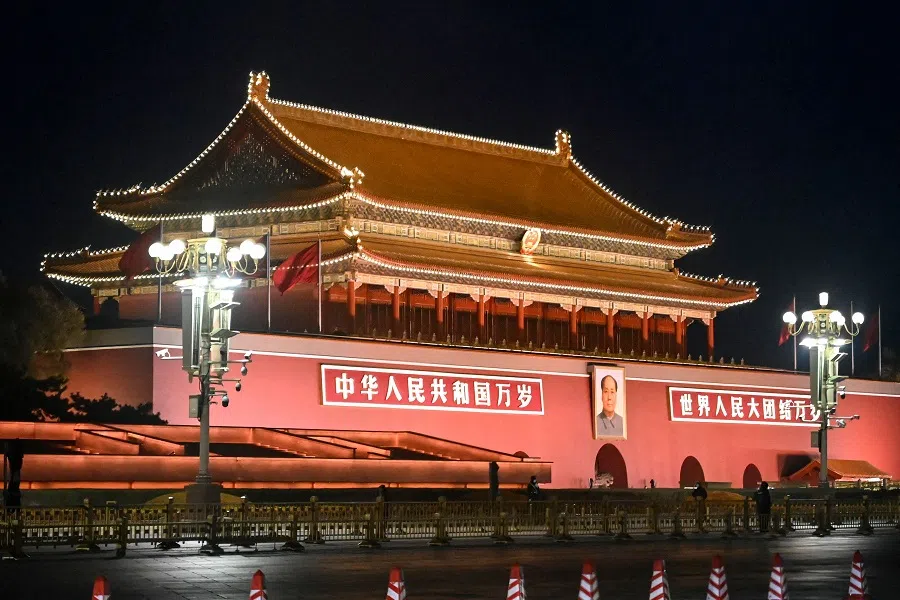
Although the original intention of the ruling party was to fight for the people's interests, its power and status inevitably turned its cadres into a privileged class. This is the fundamental reason for the collapse of the former Soviet and Eastern Europe communist regimes, and also the historical background of the CCP's current people-centred philosophy.
The CCP has a proud history of working for the good of the nation and the people, but also a tendency towards rampant corruption, bureaucratism, privilege and oligopoly, and a record of fighting against them.
Its current strategy is to uphold the original intention of "serving the people" by strengthening the beliefs, ethics, discipline and institutions of its party members and cadres without changing the power structure so as to avoid repeating the mistakes of the Communist Party of the Soviet Union (CPSU). But this does not go beyond the traditional approach of the CPSU and the efforts made to "serve the people" during the Mao Zedong era, and is bound to face the same problems, some of which are mentioned below.
Only the top leader's decision
Disengagement from the masses is the tragic flaw of the vanguard party. While Mao Zedong's "mass line" methodology solved this problem relatively well during wartime, the CCP established a massive bureaucratic system as soon as it began its rule. It is inevitable that bureaucrats, always with both eyes gazing upwards, are aloof and disengaged from the masses because the people have no control over their positions and career progress.
The CCP's motto of "serving the people" is passed down rung by rung from the top but this does not change the incentive structure of the cadres. As a result, Mao had to resort to mobilising a mass rebellion to force them to "eat, live and labour" (同吃、同住、同劳动) with the masses.
Looking back on China's Covid slogan of "the people above all, life above all", this is again an example of people-centredness without consulting the people and leaving them out of the implementation process.
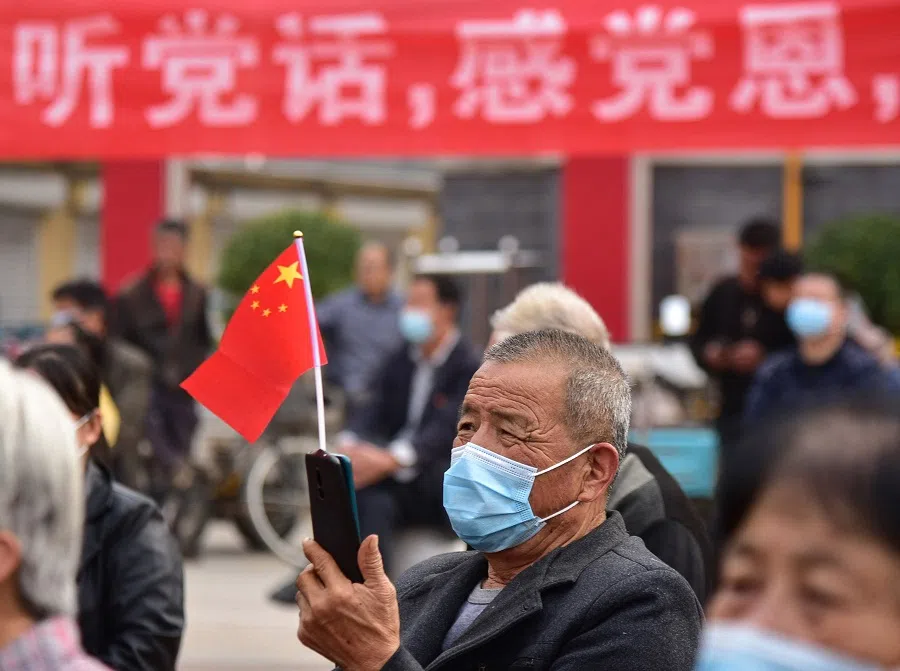
As the leaders believe that they understand the masses and are adored by them, they often make decisions on behalf of the people. But because these decisions are mixed with their own ideals and assumptions, their proposed policies do not address the people's needs and they are instead making the wrong decisions for them. For example, while Mao should have had a clear understanding of the peasants, he implemented mass communal canteens in rural areas which resulted in the Great Famine. This is inseparable from his ideal of wanting to build a socialist state and aspiring towards communism.
Looking back on China's Covid slogan of "the people above all, life above all", this is again an example of people-centredness without consulting the people and leaving them out of the implementation process. It is clear that such a simple slogan was inadequate for fighting the complex situations associated with pandemic.
While the "Wuhan model" was successful at the start, its success was owed to national mobilisation. After the virus mutated several times and complicated the outbreak in various major cities, the pandemic's impact on people's livelihoods and the economy gradually became the main concern of the people. But the CCP continued to replicate the Wuhan model and even pushed it to the extremes, creating the "miracle" of having hundreds of millions of people under lockdown at the same time. While proclaiming "people above all, life above all", the top leader was perhaps coveting being "number one in the world in fighting Covid", and having it all achieved through his "personal direction and deployment".
When that happens, "whole-process people's democracy" is nowhere to be found, and "people-centredness" is overridden by the will of the top leader. When people start to cry "give me liberty, or give me death", the slogan "life above all" also becomes meaningless, because people do not only care about their lives, but also care about how they are living their lives.
Although the US reported over a million Covid deaths, rarely do people blame the government because the government did not make any decisions on behalf of the people...
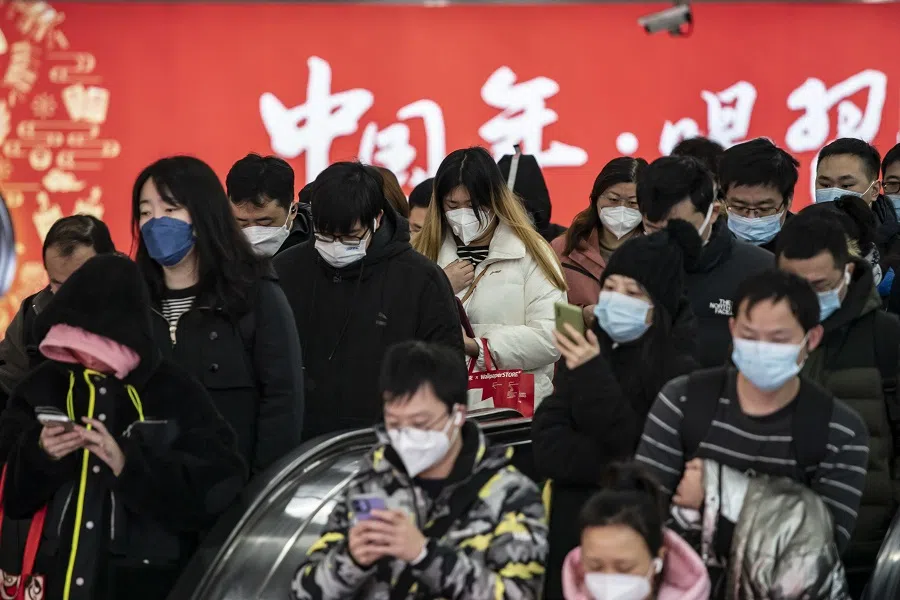
A vanguard party confident in its political system naturally lacks the humility of an elected government. As a result, its habit of making decisions on behalf of the people prevails over the modern consensus of the people being their own masters. Although the US reported over a million Covid deaths, rarely do people blame the government because the government did not make any decisions on behalf of the people - the people themselves are responsible for the consequences of their decisions.
While the ruling logic of the vanguard party dictates that a whole-process and substantive democracy is the only option, it cannot be reduced to just a slogan. Merely putting a new hat on existing systems, mechanisms and organisations solves nothing.
'The people' as a tool
Politicians all over the world love the term "the people", not just because it sounds good and noble, but because it vaporises at the operational level, so that politicians can do as they please in its name. When politicians talk about "the people", in their minds there are no flesh and blood human beings.
In Mao's time, a distinction was made between "contradictions between the enemy and us" and "contradictions within the people", and the two are dynamically interchangeable. It was of course up to those in power to decide who were the "people" and who were the "enemy". Stalin's secret police arrested, imprisoned, exiled and executed countless "people" under the crime of being "enemies of the people", including leaders of the revolution.
Someone who is considered part of a "people" today could become a prisoner tomorrow in the name of being the "class enemy"...
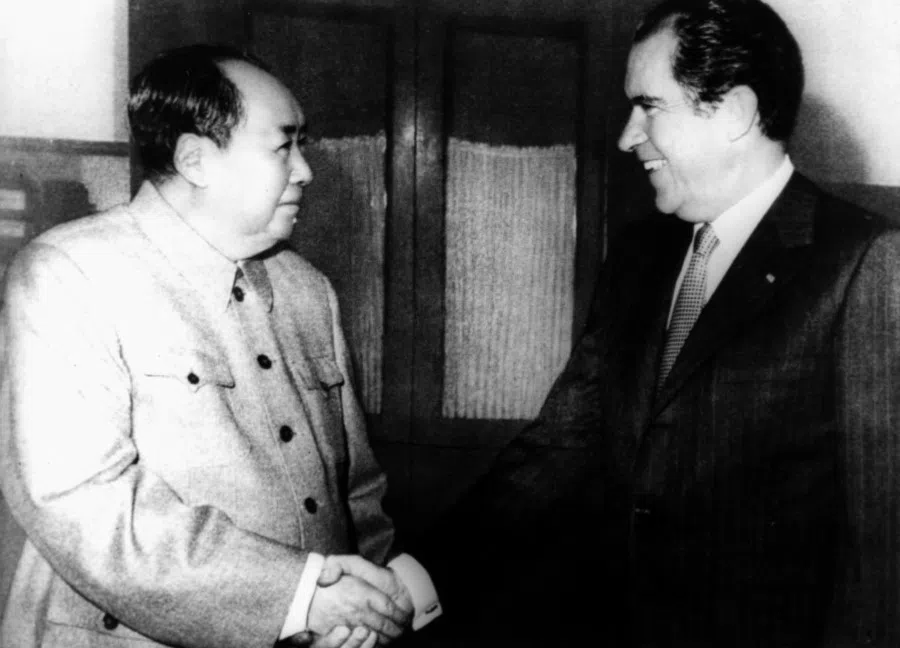
Someone who is considered part of a "people" today could become a prisoner tomorrow in the name of being the "class enemy", thereby losing all rights and dignity, like in the experiences of revolutionary veterans and top officials like Liu Shaoqi, Deng Xiaoping and Zhu Rongji.
Also, the abstract concept of "good of the people" is often used to strip away concrete individual rights, dignity and even life. So, "serving the people" may become a trap for each individual. And if any one of China's 1.4 billion people can be thus sacrificed, then so can the "good of the people". Unlike classes, interest groups, and specific communities and organisations, "the people" is a paradox, impossible to be operationalised.
The system is a cage
Mao Zedong once said: "The masses are the real heroes, while we ourselves are often childish and ignorant, and without this understanding, it is impossible to acquire even the most rudimentary knowledge." But what he acquired was a bureaucratic ruling class removed from the masses, which he called the "new bourgeoisie".
This bureaucratic framework could only be boss-centred instead of people-centred. This is a structural problem. Apart from setting the general policy direction, those at the top also set the tone, the phrasing, and the choice of words, while those below have to look up and fall in line with what to say and do - this is the core of the CCP's "political construction" in the past few years.
Adding extra measures to what is decreed from above is insurance for the fulfilment of tasks assigned from above; the ballooning of measures down the hierarchy below is due to the ever intensifying pressure from above. In this causal chain, there is no role of ordinary people at all, and officials only have abstract people in their minds.
Everything must make way for the completion of the task, including the people under their jurisdictions - as long as it does not cause "mass incidents" or a large number of complaints and petitions, you can do anything to them. In the effort against Covid, there were many violations of human rights and the law; in some places, people were managed like cattle, which was effective but undignified.
The capriciousness of power is rooted in the system setup, and a system that results in the capriciousness of power cannot possibly be people-centric.
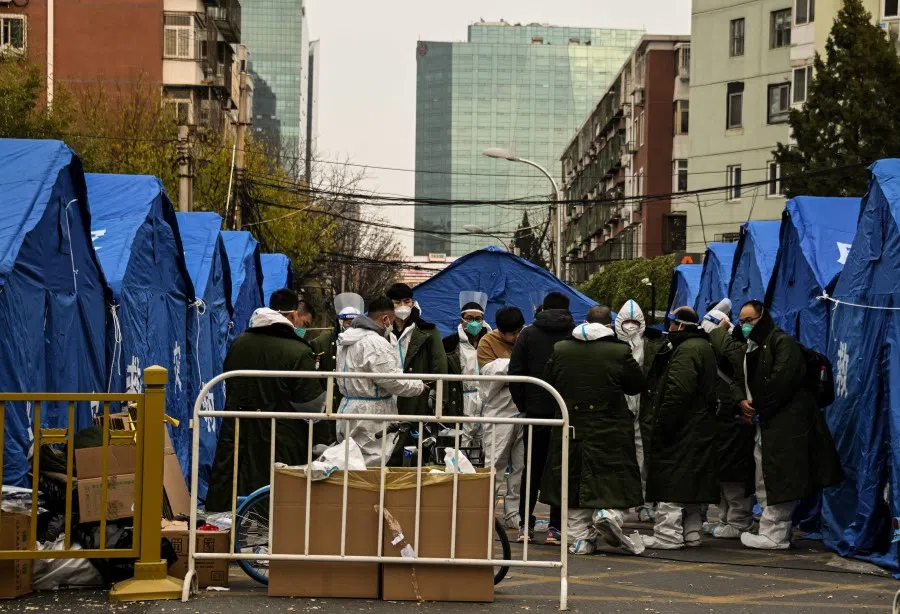
Being accountable to those above means there is no sense of responsibility in disclosing information to those below, to the point of lying to those above and concealing information from those below. This puts the common people in a state of great uncertainty about the future and being at the mercy of others, greatly aggravating their anxiety and anger.
The violent enforcement of the law during zero-Covid may not be what the authorities intended, but it was a sure consequence of a system of concentrated power. To officials, the tragedies that occur along the way matter only to the extent that they are politically significant within the system.
Even if the top leaders had godlike love for their people, the huge bureaucracy could not pass it down; on the contrary, it often turned into cold official misactions that drew hatred. A one-size-fits-all approach in policy implementation coupled with stacking additional measures layer by layer, plus a lack of common sense and humanitarian concerns - these were the nemesis of "institutional self-confidence".
In implementing "people-centred" policies, the people are sidelined. The capriciousness of power is rooted in the system setup, and a system that results in the capriciousness of power cannot possibly be people-centric.
That system works on top-down pressure to force officials to slave for the people, while the conditions created by the system allow them to ride roughshod over the people. Top-down pressure is a variable while the system is a constant; which behavioural model wins out is obvious.
'The people' as a trap
In images of the A4 protests, a group of young people confront the police and shout: "Serve the people!" Clearly, they are accusing the government of not being people-centric. While slogans like "Serve the people" are often used by unscrupulous politicians, they lend ideological ammunition and legitimacy of action to the people's opposition.
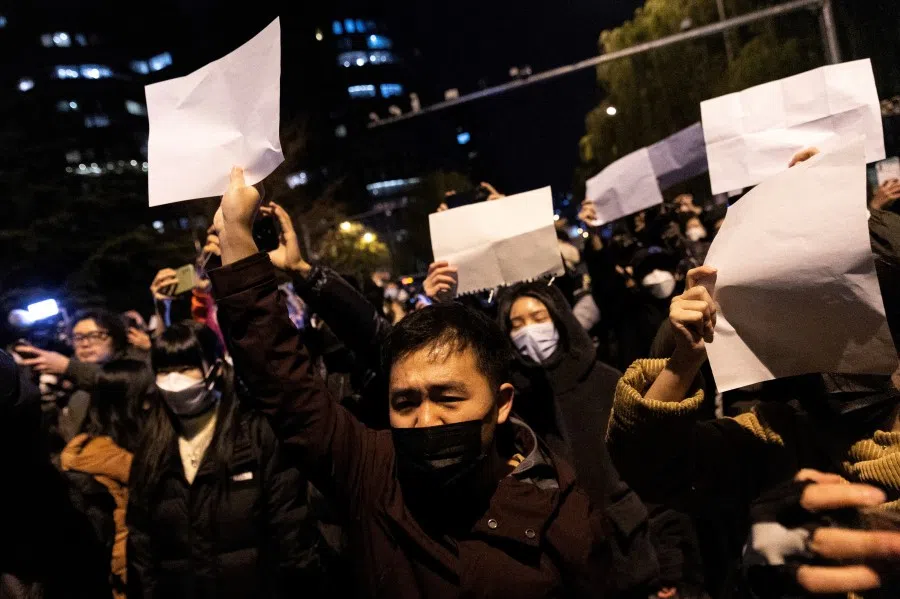
Opposing the red flag by hoisting it was a tactic often used by the opposition in the former Soviet Union, so that the authorities were often at a loss for response, because they really were not walking the talk and had betrayed their own ideals. One of the main reasons for the sudden collapse of the socialist camp was public anger over the vast discrepancy between reality and theory, which finally exploded when an opportunity came along, following long suppression.
The CCP also faces constant pressure from the left, under the banner of universal values such as "common prosperity" and orthodox Marxist ideas like "abolishing private property". They have ample reason to criticise the authorities for betraying their original mission, abandoning the proletariats, and allowing capitalist restoration - orthodox ideology and the current system have provided a ready pretext and legitimate channel for this. Hence, for those in power, serving the people is also a trap.
Rule of law has been a highlight of "comprehensive deepening reform" over the past decade. However, whether it can really happen under the vanguard party system remains a question mark.
Protecting the rights of a "human being"
Ideas like serving the people and being people-centric are not totally without merit. Under certain circumstances, they can get those in office to align policy direction with public interests. However, human rights that are protected by law and public opinion not only safeguard each individual's basic rights, but can also prevent "the people" from being reduced to an empty concept and political tool.
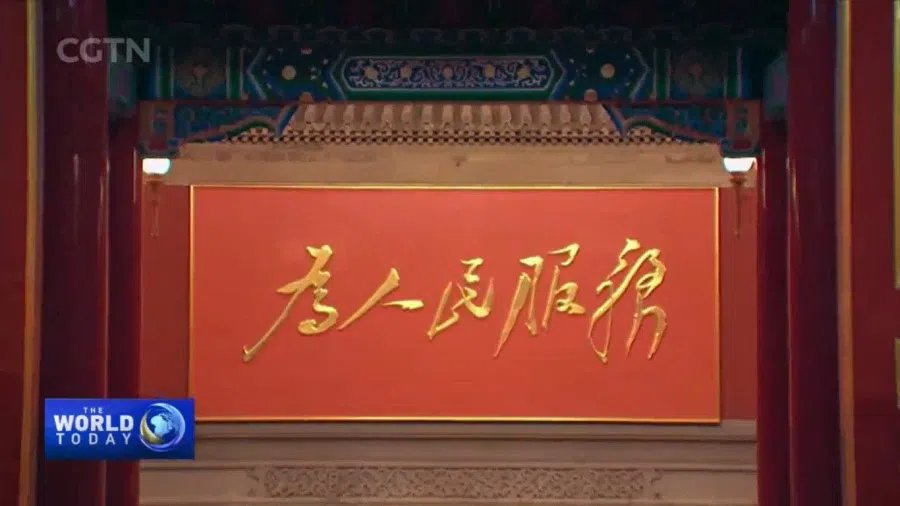
Anyone can call themselves a "human being" - no one can object to that - and demand human rights. This is a legally valid concept based on the consensus of the United Nations' Universal Declaration of Human Rights. This is probably also why the A4 demonstrators shouted "we want rule of law"; they were addressing the many unlawful incidents of human rights violations during Covid efforts under the pressure from above.
Rule of law has been a highlight of "comprehensive deepening reform" over the past decade. However, whether it can really happen under the vanguard party system remains a question mark.
This article was first published in Lianhe Zaobao as "为人民服务的猫腻".
